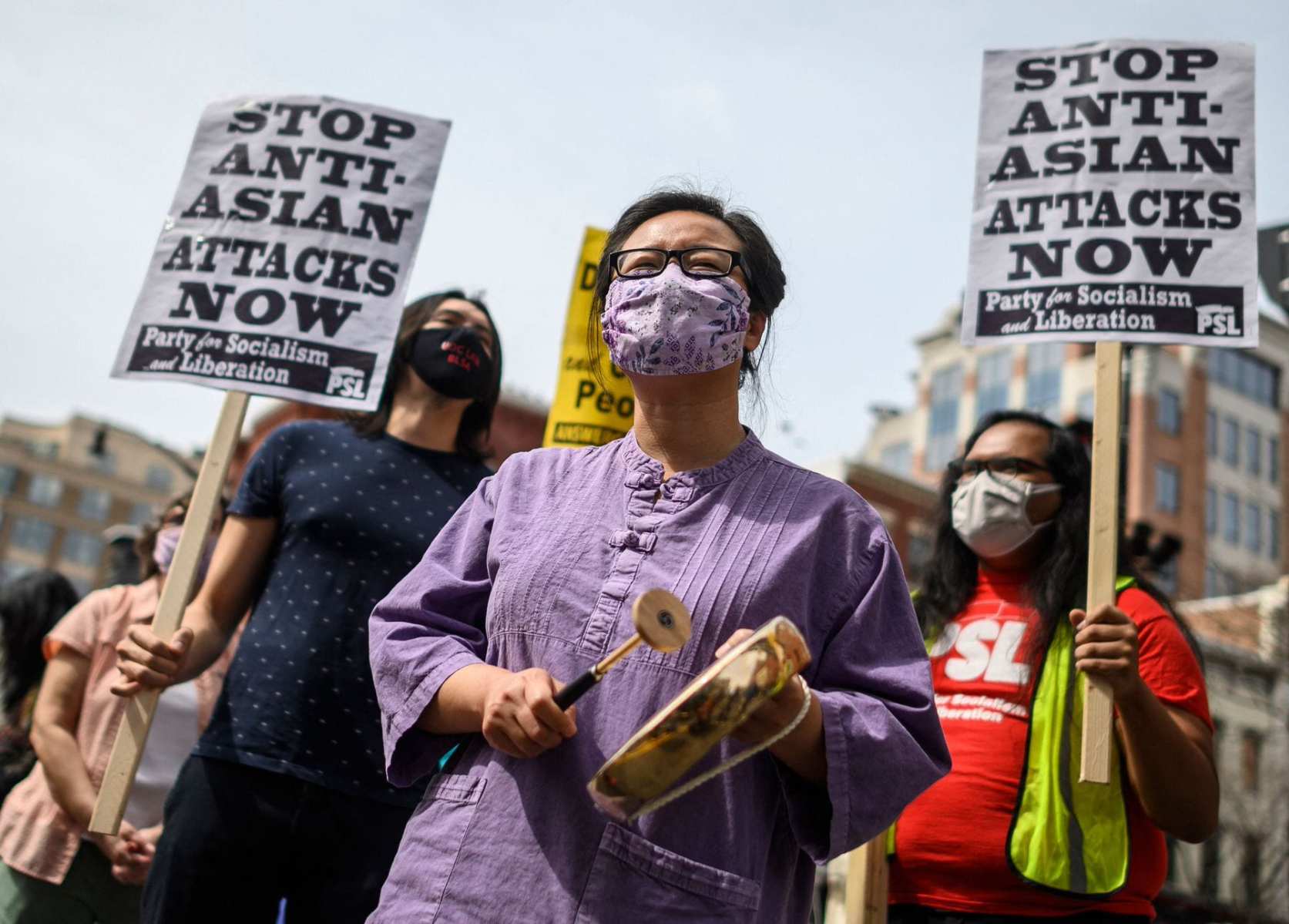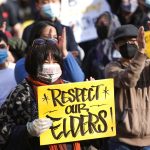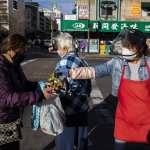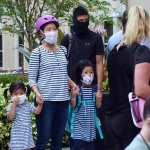Kristy Luk, a 30-year-old Asian American living in Los Angeles, gets nervous when her 65-year-old mother goes to the grocery store.
Both her parents stopped going at busy times, Luk said, and they’ve modified their time out in public. When thinking about the sacrifice her grandparents made to move their family to the U.S from Hong Kong and Taiwan, Luk gets emotional thinking about the fear her family now carries to do anything in public.
“My grandparents came here thinking that there was greater opportunity, thinking that there would be more access, and instead to be faced with hatred and violence,” Luk said. “That I think at its root is really about this message of you don’t belong, and you never belong.”
She now asks, “At what cost? Was it worth it? Am I worth it?”
More than 80 percent of Asian Americans — the fastest growing racial and ethnic group — say violence against them is increasing, according to a Pew Research Center survey conducted in April, just a few weeks after six Asian women were killed in a series of shootings in Atlanta. The findings were published days before May 1, the beginning of Asian Pacific American Heritage Month — a decades-old celebration that originally commemorated the immigration of the first Japanese in the 1840s and marked the anniversary of the Chinese immigrants’ completion of the transcontinental railroad.
Nearly half of the Asian American adults surveyed said that at least once since the pandemic started, they have feared someone would physically attack them, been subject to racial slurs, noticed people were uncomfortable around them, been told to go back to their home country or been blamed for the COVID-19 outbreak.
And the violence has fallen along gendered lines.
A separate survey conducted in March by the National Asian Pacific American Women’s Forum found that about 55 percent of AAPI women had “personally encountered” racism in the past two years. And in Georgia, that figure jumped to 66 percent. The survey, the largest survey of AAPI women ever conducted, also found these experiences impacted the women’s policy priorities, particularly leading them to value increased protections for immigrants.
Anson Tong, 23, said she remembers kids at school telling her that all Asian girls looked the same; many vocalized racial slurs toward her. She remembers laughing it off, but never feeling good after.
Tong said her mother taught her to stay strong and keep “putting your nose to the grindstone.”
“I cannot live anywhere but in this liminal space of never being American enough for America and never being Chinese enough for China,” said Tong, who noted that speaking English does not combat the perception that she’s not American.
When thinking about her childhood experience and the experiences of other AAPI children today, Tong said she felt angry and hopeless.
In recent years, Joy Chen, 51, has been approached countless times by strangers on the street who sexualize her. They always note her identity as both a woman and an Asian woman, she said. The recent violence against Asian women has only intensified her ongoing struggle to feel safe being alone and to be seen beyond her race and gender.
“It’s like 51 years of pent-up anguish poured out of me,” Chen said, referencing her emotions following the Atlanta attacks. “But in America, we Asian women always are lumped together as the sexualized other.”
Sung Yeon Choimorrow, the executive director of the National Asian Pacific American Women’s Forum, said Asian American women are experiencing harm on two fronts: increased racism in the pandemic in part due to officials — including former President Donald Trump — blaming China for the spread of COVID-19 and a cultural fetishization that has long been a common experience for these women.
“This isn’t just a reckoning moment for Asian Americans around discrimination, but Asian American women are also having our own #MeToo moment,” Choimorrow said. “To honor the lives of the women that were murdered [in Atlanta], we have to talk about racialized misogyny. They were perceived to be sex workers and targeted because they were Asian American women. We can’t lose sight of that.”
Chen is done staying silent because her story is worth telling, she said. Asian Americans, especially women, are not accustomed to speaking up or sharing their stories — taught to “shut up and assimilate” into the dominant culture, she said.
“The Asian American experience is never told,” Chen said. “We remain invisible. The physical assaults, to me, are a symptom of an underlying problem, [which is] the erasure of Asians. … How do we really include Asians in our society, in the culture that we create? And in the history that we write? And the reporting that we do?”
In an open-ended question in the Pew survey, about 20 percent of the Asian respondents — who believed violence against the AAPI community had increased — listed former president Donald Trump as one of the main reasons. About 16 percent mentioned racism, and another 15 percent responded that Asians were being used as a scapegoat.
Growing up in Ohio, 47-year-old Aimeelene Gaspar said she was always the only Asian person in the room. Other kids would repeatedly make fun of her culture and heritage, telling her to “go home” or “go back to where I came from.” Gaspar was born in Chicago.
“It’s like you’re a thing and not a person,” Gaspar said.
After the Atlanta attacks, Gaspar purchased mace for her teenage twin daughters, telling them it is important to “fight back” and for other bystanders to always intervene. As a runner, she’s been more fearful to jog at night. For the last year, she’s been in the process of creating an app that will allow women to check-in with a location and emergency contact prior to their run in hopes of creating a network of safety for women who are out alone. She thinks the app is all the more important following the attacks on AAPI women and is looking to speed up her process.
“I think as women we’re always taught to be on guard,” Gaspar said. “I mean, it’s hard enough being a woman, then you have this other stigma, just based on your being an Asian woman.”
Asian American women have all experienced microaggressions and exoticism that is rarely considered racism, Choimorrow said. Instead, the AAPI community is often categorized as the “model minority” — a term coined in the 1960s to compare Japanese Americans to Black people.
“The term ‘model minority’ was literally created to form a wedge between White people and other people of color,” Choimorrow said. “What I’ve been trying to say is true solidarity is to understand where our oppression comes from and understand that we’ve experienced racism. … Our stories are rooted in the same white supremacist system.”
Choimorrow said the most recent attacks shocked the country and brought attention to the experiences of too many members of the AAPI community. But she hopes the conversation moves past incidences of physical assault and harassment.
“How are you going to humanize us?” Choimorrow said. “There’s so much attention because people are appalled, but I don’t want it to stop there… I want to make sure people take a good look at themselves.”





